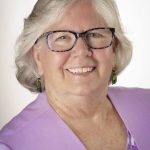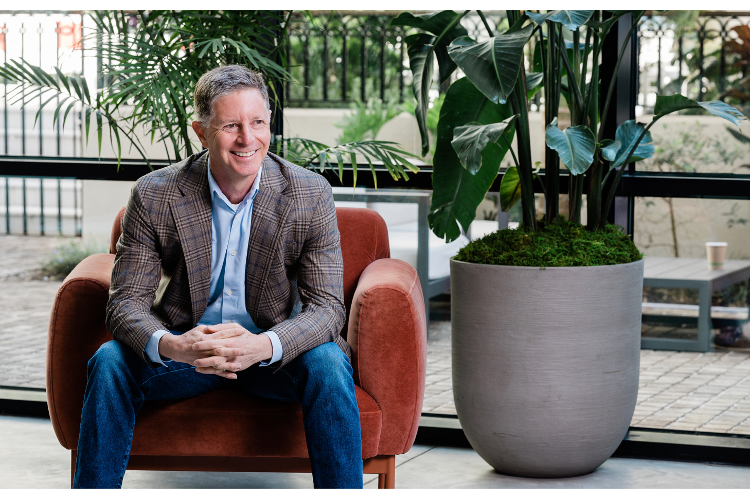Q&A: Len Polizzotto, Draper Laboratory
Draper Laboratory, an MIT spin-off based in Cambridge, MA, and pioneer in the development of MEMS technologies for 25 years, opened facilities in October at the University of South Florida in Tampa and in St. Petersburg. Dr. Len Polizzotto, principal director of strategic business development, talks with 83 Degrees about Draper’s expansion into Florida.
An MIT spin-off based in Cambridge, MA, and pioneer in the development of MEMS technologies for 25 years, Draper Laboratory opened facilities in October at the University of South Florida in Tampa and in St. Petersburg.
Dr. Len Polizzotto, principal director of strategic business development, talks with 83 Degrees about Draper’s expansion into Florida.
83 Degrees: What is particularly innovative about Draper Laboratory’s new operations in the Tampa Bay region?
Len Polizzotto: At Draper, we want to solve important problems facing the nation related to security, health care, energy and the environment. We’re a nonprofit that engineers solutions to problems based on what is requested.
83D: Could you give an example?
LP: In security, for instance, the military might say, “we have all this weight that soldiers must carry. Is there a way to reduce it?” If we can create multichip modules that reduce the volume of some electronic device by a factor of 1,000 – make it really, really small – it’s going to be much lighter. That way they can carry a backpack with lots less weight. It’s applicable to soldiers overseas. And it’s applicable to firefighters and first responders here at home. We design the modules to make that happen. We don’t make weapons. We don’t make products.
83D: What is Draper’s focus in the area of health care?
LP: In Tampa, we’re partnering with the University of South Florida, the VA Hospital, Moffitt Cancer Center and Tampa General Hospital to develop new medical devices. That can include everything from growing liver tissue in three-dimensional ways to test malarial parasites to developing implantable sensors that can detect sodium levels or potassium levels or other kinds of chemicals in the body. It’s all bio-engineering. We take the research that has been developed and make it into usable prototypes. It’s called bridging the “valley of death.”
83D: Can you explain what that means?
LP: In the past, when universities developed drug compounds, they couldn’t get them into clinics. The developments would die before they got a chance to be put to work. Draper makes sure the research lives by figuring out how to get the research from the laboratory into the clinic – bridging the “valley of death.”
83D: What kind of workers are employed at Draper?
LP: We are knowledge workers. Most have advanced degrees. A significant number are in the biosciences and engineering.
83D: How many jobs have been filled and how many more will be filled?
LP: Right now, we have somewhere in the order of 15 folks in each facility. After seven years, we anticipate filling 165 jobs total. Some will be technicians, support staff, finance, administrative assistants.
83D: What kind of peripheral industries do you envision spinning off from what Draper is doing?
LP: An example would be a company that manufactures a new medical device that we have designed, say a novel way to deliver drugs to a particular tumor using MEMS (Micro-Electro-Mechanical Systems).
83D: What do you see as the overall economic impact of Draper on the Tampa Bay region?
LP: The immediate impact is to create jobs. Typically, when a company creates one knowledge worker job, there is a catalytic effect of creating three to five additional knowledge worker jobs.
83D: How do you see Draper’s Florida operations evolving over the next 10 years?
LP: Our intent is to grow both facilities. As we develop new MEMS applications, the number of customers will grow. We’ll add folks as that happens. We anticipate our bio-operations will grow similarly. As we obtain grants and develop proposals, Draper will continue to work with USF and other partners in collaborative efforts within the medical industry sector. Once we’re doing a lot of work with Progress Energy within the energy sector, we’ll be adding prospective business partners that we don’t even know about now. Same with the environmental sector.
83D: How would you define “success” in 2019 if all goes as planned?
LP: Everybody we worked with over the years from county to city to private industry to the state of Florida would be glad that we’re here and would answer the phone when someone from Draper calls.
Diane Egner, publisher and managing editor, shares insights from thought leaders by conducting interviews and editing their answers for succinctness. Comments? Contact 83 Degrees.












